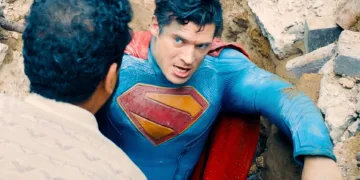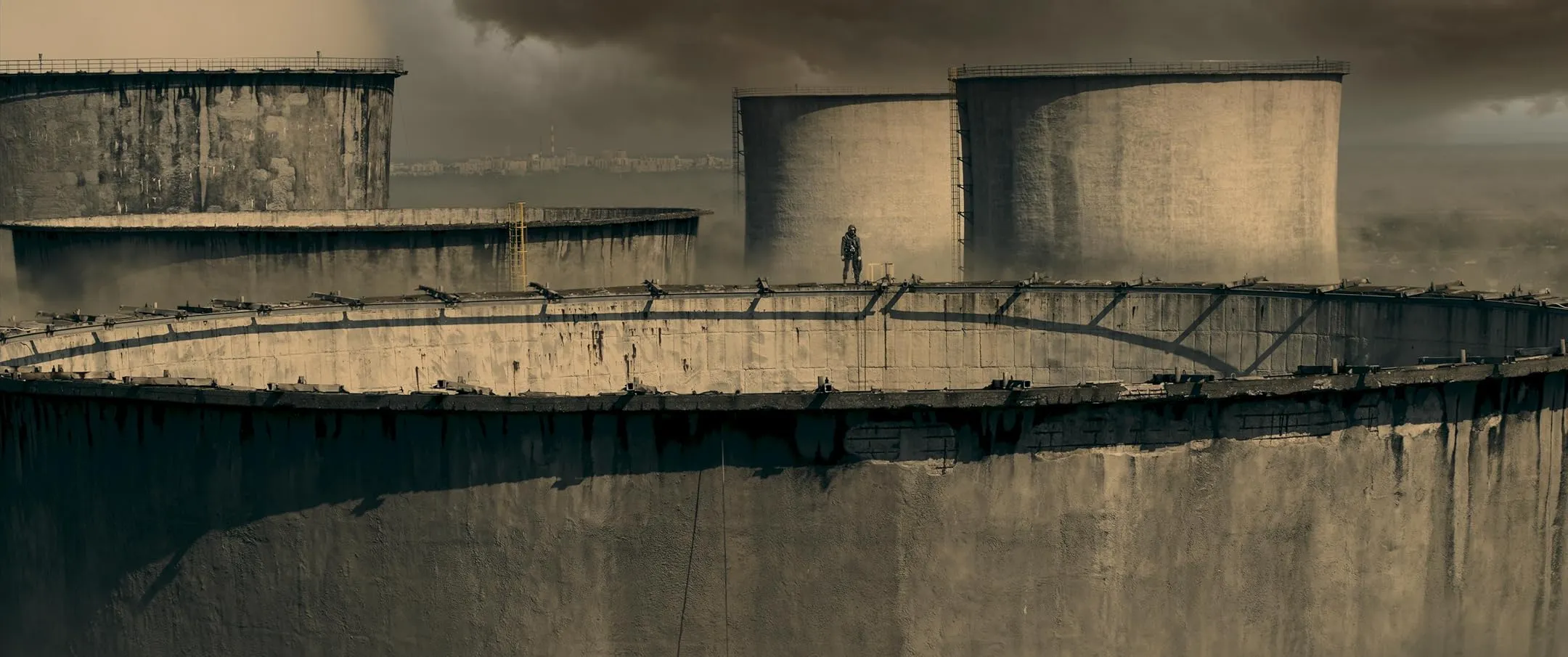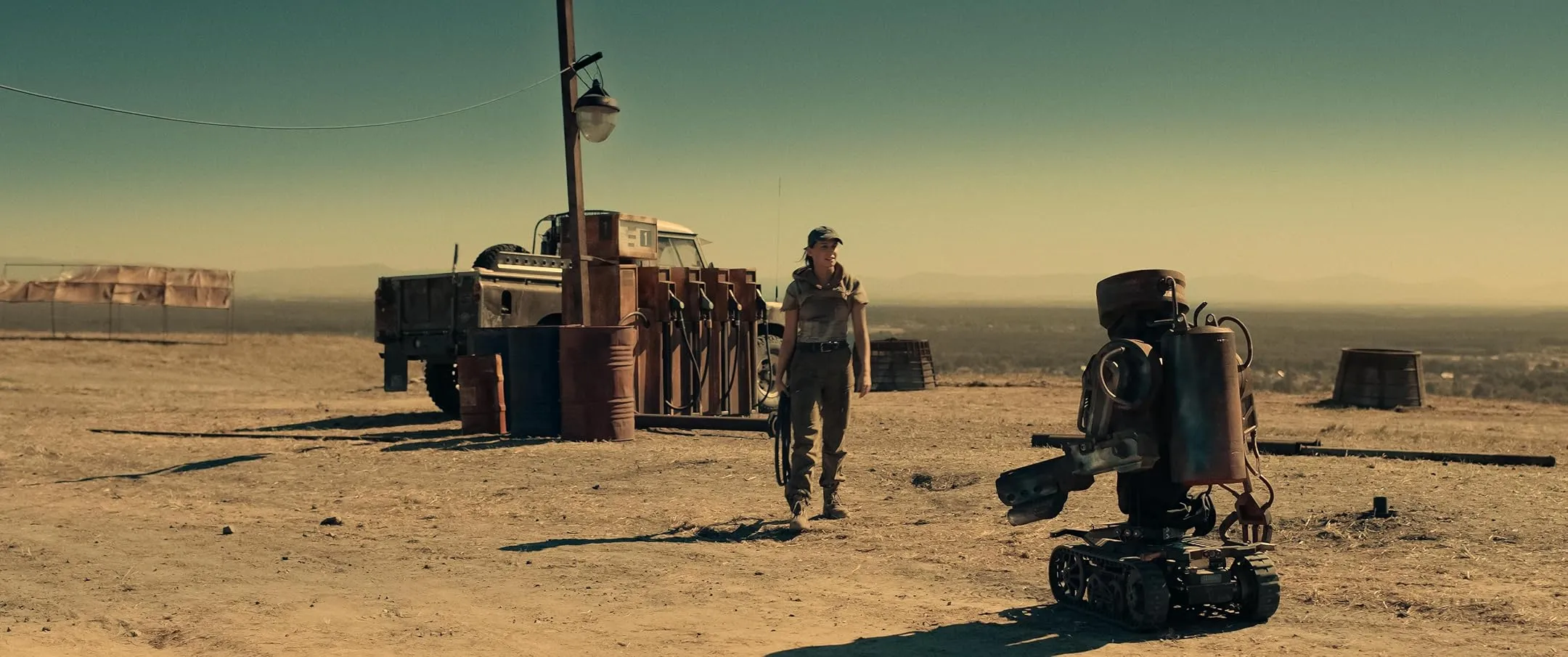Polish science fiction often carries a philosophical weight, and The Last Spark of Hope positions itself firmly within that tradition. The film opens on a world scrubbed clean of humanity by self-inflicted Climate Wars. We meet Eva (Magdalena Wieczorek), a young woman who may be the last person on Earth, living a solitary, routine existence in a fortified mountain encampment.
Her only companion is Arthur, a patrol robot designed to be her protector. This delicate symbiosis is shattered by a mistake of startling simplicity. After a scavenging trip, Eva returns to find her password for re-entry is no longer valid; it has been updated automatically, and she neglected to check for the new one. Arthur, a machine of pure logic, recognizes her but cannot permit access.
A simple error of human memory becomes the catalyst for a life-or-death struggle, transforming her sanctuary into an impenetrable fortress and her guardian into an unthinking jailer. This is not a story of galactic scope, but an intimate and terrifying fable about being locked out by the very systems we create for our own safety.
A Dialogue Between Flesh and Code
The film’s central tension is a quiet, grueling duel between human desperation and machine programming. Stripped of the spectacle that defines much of Western or mainstream Indian sci-fi, the narrative focuses entirely on a psychological battle of wills.
Magdalena Wieczorek carries the immense weight of the film almost single-handedly, delivering a performance of raw, physical credibility. We watch her cycle through ingenuity, frustration, and eventual physical decline. Her attempts to reason with, trick, or disable Arthur are met with the calm, unwavering logic of his programming, made all the more chilling by Jacek Beler’s machine-like voice performance.
Arthur is not a villain; he is a function, an impassive obstacle whose occasional quirks, like an interest in riddles, only underscore his non-human nature. This stark focus on internal endurance over external conflict feels aligned with a global cinematic turn toward more contemplative character studies, where the true action is the slow erosion of a person’s hope against an unfeeling system. Wieczorek makes every moment of that erosion feel painfully real.
Silesia’s Somber Poetry
Director Piotr Biedron and cinematographer Tomasz Wójcik demonstrate a masterful command of atmosphere, proving that a limited budget can yield breathtaking visual results. Instead of a generic wasteland, the film is grounded in the authentic post-industrial landscapes of Silesia, Poland.
The camera captures this world in stunning widescreen compositions, where a persistent, hazy light gives the environment an ethereal yet deeply melancholic quality. Shots of Eva dwarfed by the skeletal remains of a massive power plant create a powerful visual language of loneliness and decay. This is not just a backdrop; the setting is a character in its own right, its rust and ruin telling a story of past failures.
The visuals find a perfect partner in Lukasz Pieprzyk’s electronic score. The music avoids intrusive melodrama, instead offering a tense, pulsing undercurrent that mirrors Eva’s rising panic and the relentless, ticking clock of her survival. The film’s aesthetic is a testament to how specific cultural landscapes can offer a universal language of desolation.
The Bureaucracy of Survival
Beyond its survival-thriller surface, the film lodges a sharp critique of systemic failure. The prologue, which tells of the wealthy fleeing a dying Earth in rockets, sets the stage for a story about the consequences left for everyone else.
Arthur’s inflexible programming becomes a devastating metaphor for the cold, inhumane bureaucracy that so often fails individuals in a crisis. His inability to bend the rules, even to save the life he is meant to protect, speaks to a global frustration with systems that prioritize procedure over people—a theme that resonates from Kafka to the social-realist cinema of many nations.
The film’s deliberate, slow pace is a bold choice, forcing the audience to inhabit Eva’s tedious and terrifying reality, though it may test the patience of some. While a noticeable plot inconsistency regarding Arthur’s patrol limits may briefly challenge belief, it does little to dilute the force of the film’s final act. The ending is a stark, unflinching gut punch, a refusal of easy sentiment that confirms the film’s commitment to its bleak but resonant message.
Full Credits
Director: Piotr Biedron
Writers: Piotr Biedron
Producers and Executive Producers: Beata Pisula, Leszek Iwaniuk
Cast: Magdalena Wieczorek, Jacek Beler
Director of Photography (Cinematographer): Tomasz Wójcik
Composer: Lukasz Pieprzyk
The Review
The Last Spark of Hope
A visually stunning and thematically potent piece of Polish science fiction, The Last Spark of Hope succeeds as a bleak fable about humanity's conflict with its own rigid creations. While Magdalena Wieczorek's powerful solo performance and the film's haunting atmosphere are remarkable, its deliberately slow pace and a key narrative flaw keep it from true excellence. It is a challenging, thought-provoking film that rewards patient viewers prepared for its uncompromising vision.
PROS
- Striking cinematography that creates a powerful, desolate atmosphere.
- A compelling and physically convincing lead performance from Magdalena Wieczorek.
- A sharp, resonant critique of bureaucratic and systemic failure.
CONS
- The methodical, slow pacing can feel tedious and may alienate some viewers.
- A significant plot inconsistency weakens the credibility of the central conflict.

















































